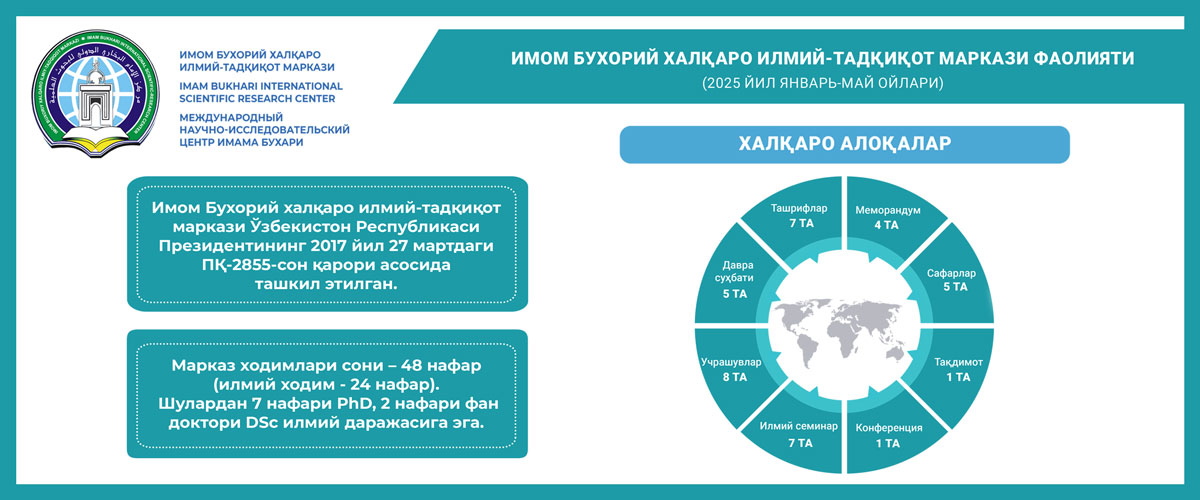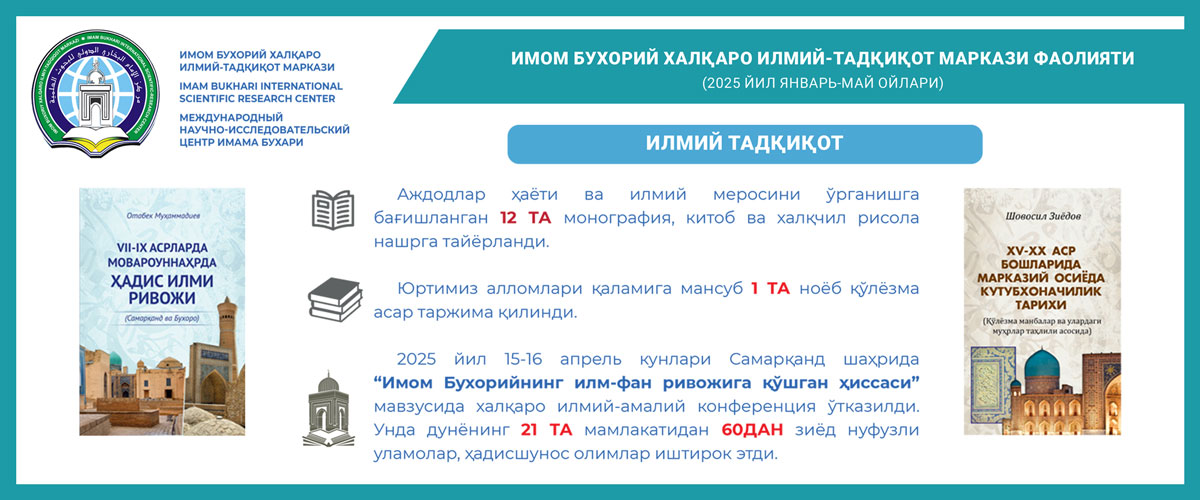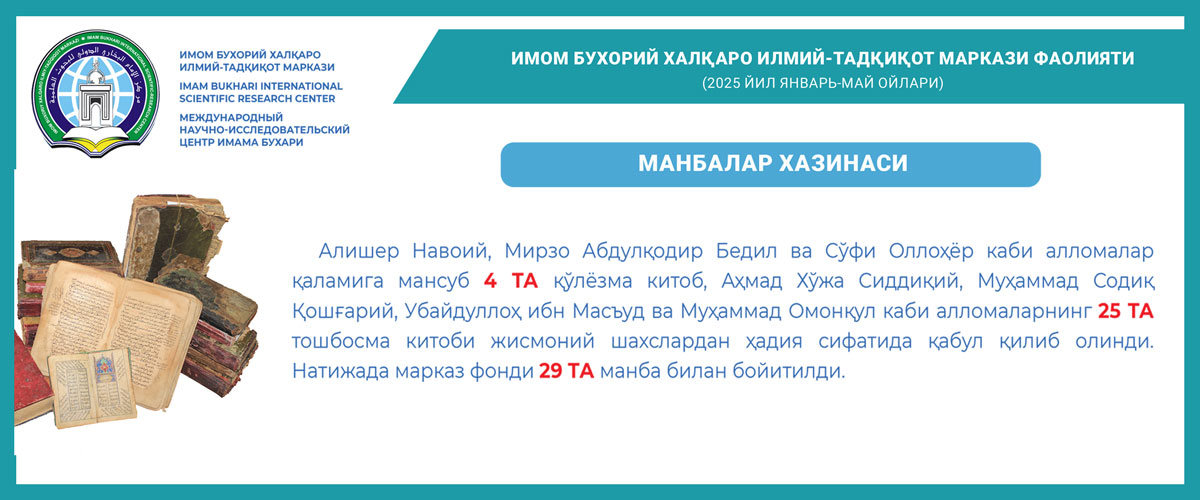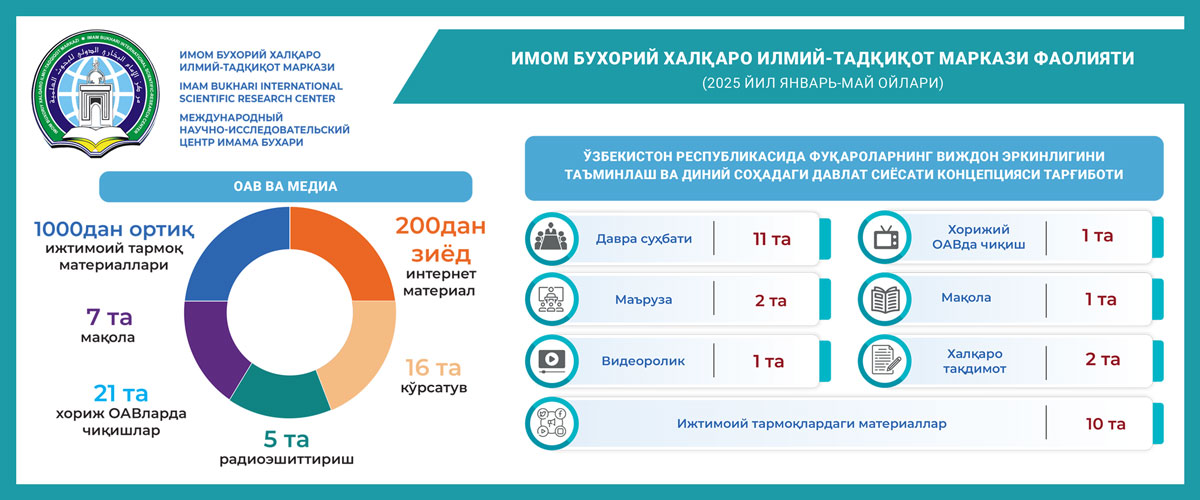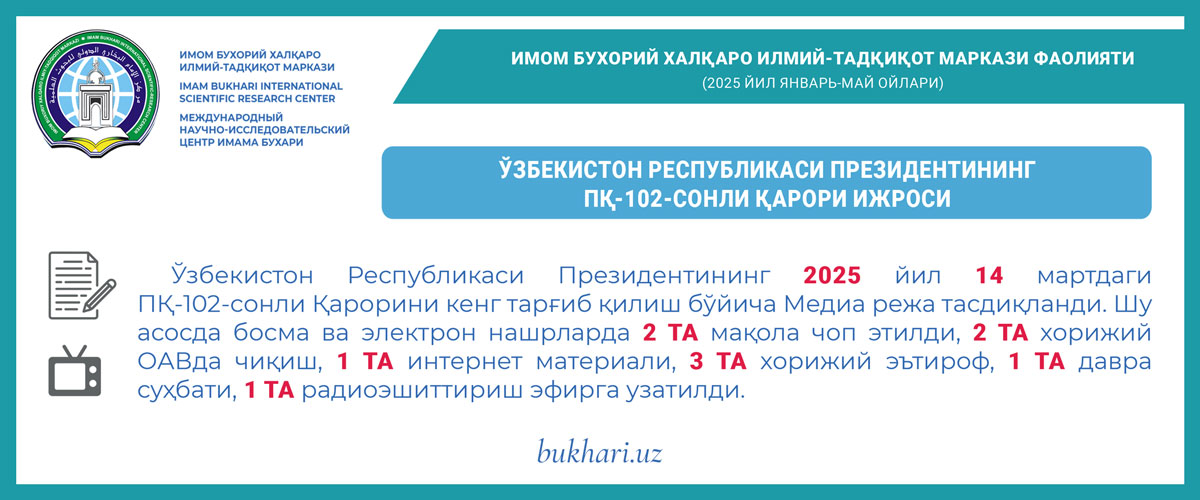Abu-l-Barakat an-Nasafi’s next book “Al-Manar” (Light) was written to describe the main principles of the Islamic law, legal matters, their rules and claims. It also describes such legal matters of Islam based on the Holy Qur’an and Hadiths as types of punishment (sentence, ijma and qias) and the cases and ways of using them. This manual is appreciated by the experts of law as a short and laconic answer to most of the controversial problems of the Islamic law. Therefore, this subject based on the commentaries ol experts is taught in our religious educational institutions.
Abu-l-Barak at an-Nasafi began his book “Al-Manar” with praising the Creator and classified the main principles of Shariah (usul ash-Sharia) into four main component parts as the Qur’an, Sunnah, ijma and qias (comparison). He stressed that the rest of the legal matters are decided on the basis of those above-mentioned principles of Shariah.
As the original sources witness us, the first person to compile the principles of Shariah in the form of a book was the founder of the Shafi’i order Imam Ash-Shafi’i. He was followed by some representatives of other orders in religion. “Al-Manar” by Abu-l-Barakat an-Nasafi is one of them to which some commentaries were devoted by the leading specialists of that time. An-Nasafi himself commented on his own book and titled it as “Kashf al-Asrar” (Disclosing the Secrets). One of his followers Kafi al-Aqhisari made a commentary on the work under discussion in the form of a small booklet. The list of such commentaries may be continued by the following works:
- “Nur al-anvar fi sharh al-Manar” (A light ray of commentaries of al-Manar) by Ahmad ibn Abu Said al-Hanafi;
- “Ifada al-anvar fi izai usul al-Manar” (The use of rays in the spread of styles of al-Manar) by Sa’d ad-din Abu-l-Fadail ad-Dehlavi (died in 1486-87);
- “Tabassurat al-Asrar fi sharh al-Manar” (The ability of seeing the secrets of commentaries of al-Manar) by Sheikh Shija ad-din Hibatullah ibn Ahmad at-Turkistani (died in 1332-33);
- “Jami al-Asrar” (A collector of secrets) by Qivam ad-din Muhammad ibn Muhammad at-Turkistani (died in 1348-49), etc.
Besides those above-mentioned works, there are some more books belonging to the pen of Abu-l-Barakat an-Nasafi. They are as follows:
- “Al-Musaffa fi sharh al-manzuma an-Nasafiya” (Defined commentary on the poetry of an-Nasafi) — belonging to the science of kalam;
- “Al-Mustasfa fi sharh al-fiqh an-nafi” (Selected useful law commentaries) — belonging to the science of law;
- “Umdat al-aqaid” (The basis of teachings) — belonging to the science of kalam.
A number of works belonging to the pen of Abu-l-Barakat an-Nasafi are preserved in the scientific library of the Institute of Oriental Studies named after Abu Rayhan Beruni of the Academy of Sciences of the Republic of Uzbekistan.
“Umdat al-aqaid” by Hafiz ad-din an-Nasafi is a book that covers most of the urgent and controversial problems of the science of kalam. Dozens of commentaries were devoted to this book by the leading experts of his time. Among them we can mention some which are:
- “Az-Zubda” (Cream) by Jamal ad-din Mahmud ibn Ahmad
al-Kavnavi (died in 770/1368-69); - “Al-Inqad” (Rescue) by a scholar who lived in the 14th
century Amad al-Aqshahari al-Hanafi.
In 710/1310, Abu-l-Barakat an-Nasafi came to Baghdad and died there on a Friday evening of the month Rabi al-awal. He was buried in the city of Hijaz situated between Huzistan and Isfahan.
It worthy to call his next book titled “Madarik at-tanzil va haqaiq at-ta’vil” (Meanings of the Holy Qur’an and realities of ta’vil) as the best one in the field of tafsir. It is also known as “Tafsir an-Nasafi”. Among the books devoted to the science of Tafsir “Tafsir an-Nasafi” is the most precious and appreciated one by Abu-l-Barakat an-Nasafi because it covers the most urgent problems of the science of tafsir which was written under the spirit of the teachings of the Hanafian order. The meanings of ayahs of the Holy Qur’an are commented under the visions of Imam Abu Mansur Maturidi and his Maturidiya School. These views are enriched with the ideas promoted by the outstanding specialists of Samarkand and Bukhara. A number of utterances and ideas of Imam Maturidi and his book “Ta’vilat ahl as-Sunnah” are cited in this tafsir. Alongside with them, in the commentaries of ayahs the author often uses the phrase “iclana” meaning ‘in our view, in our opinion’ or ‘in our order’.
 Imom Buxoriy xalqaro ilmiy-tadqiqot markazi bukhari.uz
Imom Buxoriy xalqaro ilmiy-tadqiqot markazi bukhari.uz
